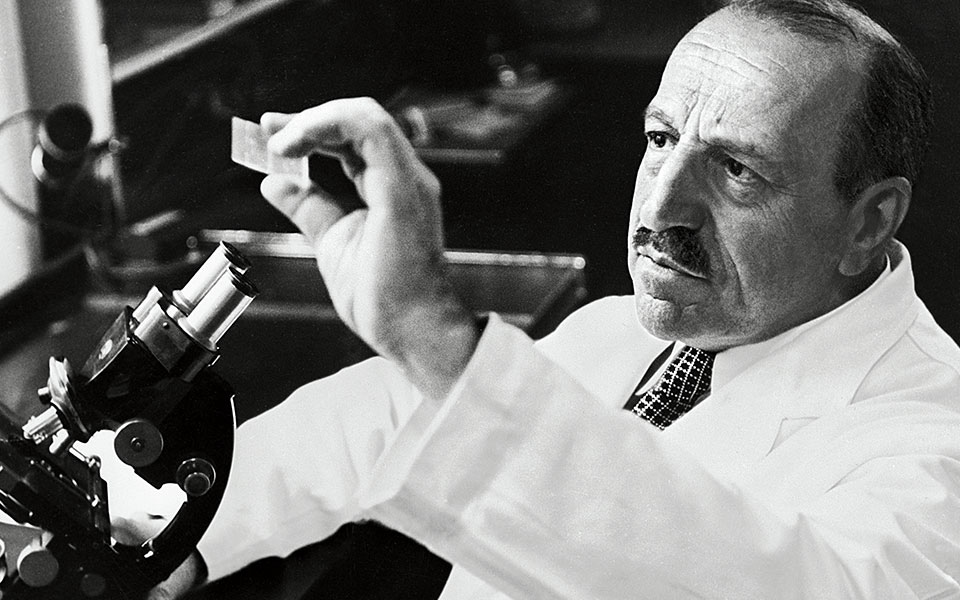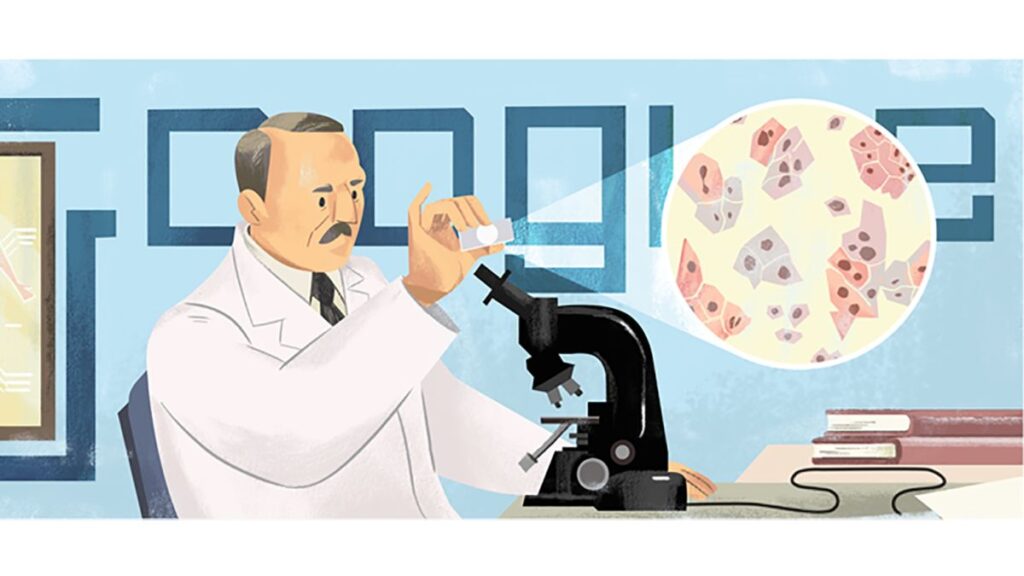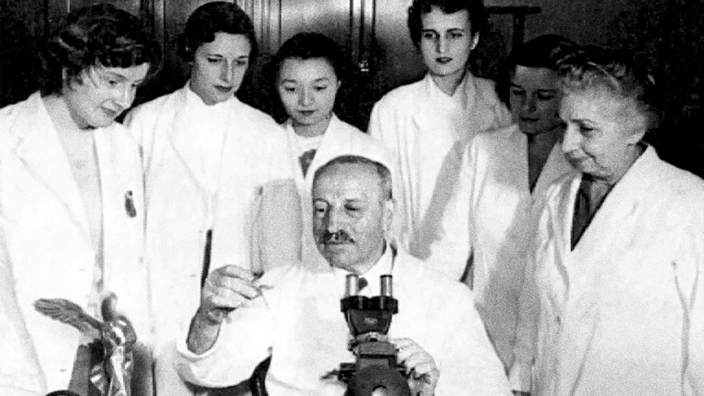Described by many as one of the most brilliant scientific minds of the 20th century, Georgios Papanikolaou is recognised for developing the life-saving cervical cancer test also known as Pap smear or Pap test.
But in his lifetime, the doctor was not always appreciated for his achievements. This is his story:
‘I’m no longer a dreamer’
- Born on the Greek island of Euboea on May 13, 1883, Papanikolaou was one of four children.
- He attended the University of Athens, majoring in music and the humanities.
- According to the tradition of those times, the firstborn son had to follow his father’s steps, but as his brother chose law, Papanikolaou, who was already showing an inclination towards medicine, took up the responsibility instead.
- In 1898, aged only 15, he managed to get into the School of Medicine of the National University of Athens and, after graduation, he worked in the military as an assistant surgeon for a short time. In 1904, he graduated with top honours.
- He returned to Greece, and for the next two years, he cared for leprosy patients on the outskirts of his hometown.
- The scientist also used this time to study philosophy and biology. But, he discovered scientific research fascinated him.
- Aware of this, his father decided to send him to Germany for further studies and it was during this time that the scientist decided that research and biology would be the purpose of his life.
- He received a PhD in zoology in 1910.

Life in the United States
- In 1910, after his return to Greece, Papanikolaou married the educated and open-minded Andromache Mavroyeni (Mary). She was the descendant of the Mavrogenous family who made history fighting against the Ottomans in the Greek War of Independence.
- In 1913, he and his wife disembarked in New York.
- The couple initially struggled to make a living – Papanikolaou sold carpets and played the violin in restaurants as Mary sewed buttons for $5 a week, but he would overcome the difficulties quickly.
- In October 1914, Papanikolaou was recruited as a researcher at Cornell University, where he would work for the next 47 years.
- There, Papanikolaou worked alongside his wife who served as a technician and sometimes test subject.
The Pap test
- While Papanikolaou’s research would eventually be on human physiology, he started his studies with guinea pigs.
- He devoted his time researching early cancer diagnosis through recovery and identification of exfoliated cancer cells.
- From 1920, Papanikolaou started to focus on the cytopathology, a branch of pathology that studies and diagnoses diseases on the cellular level, of the human reproductive system.
- The first time Papanikolaou identified the cancerous cell in a sample from a woman with cervical cancer, he confessed it was one of the most important experiences of his career.
- His first clinical trial proved the diagnostic value of cytological examination of smears. This work became the cornerstone of his method that would allow the timely diagnosis of cervical cancer.
- His achievements were received with doubt by the US medical community. However, he was convinced and continued his research.
- He demonstrated the normal and abnormal smears taken from the cervix could be viewed under the microscope and be correctly classified.
- This procedure, now known as the Pap (Papanikolaou) smear or test, became the standard in screening for cervical cancer.

Sudden heart attack
- The scientist worked relentlessly on his experiments for many years. He often put in a six-and-a-half week and a 14-hour day at Cornell and at his home in Douglaston Queens.
- Physicians and other scientists from all parts of the world went to him at his Cornell laboratory to become proficient in his test technique.
- In 1961, despite the fact that he was 78 years old, he decided to leave New York and settle in Miami. He planned to undertake the management of the Miami Cancer Institute.
- However, he did not have the chance to inaugurate the institute himself. He died suddenly of a heart attack on February 19, 1962. The institute was renamed the Papanikolaou Cancer Research Institute in his honour.
- Throughout his career, Papanikolaou kept bonds with Greece and maintained interest in the country’s politics.
- Mary, his wife, continued his work in Miami until her death in 1982. “There was no other option for me but to follow him inside the lab, making his way of life mine,” she is quoted as saying.
- Her devotion was such that, according to local publications, she decided not to have children in order to always be by him.
Recognition
- In 1978, Papanikolaou’s work was honoured by the US Postal Service with a 13-cent stamp for early cancer detection.
- Between 1995 and 2001, his portrait appeared on the Greek 10,000 drachma banknote, until its replacement by the euro.
- He never received the Nobel Prize, but was nominated twice. He also received the Albert Lasker Award for clinical medical research in 1950.
- The scientist’s bibliography consists of 158 articles and five scientific books.
- One of the most important examples is the famous Atlas of Exfoliative Cytology. The book is considered by many a milestone in the science of cytology.
*With information from AlJazeera & Wikipedia


